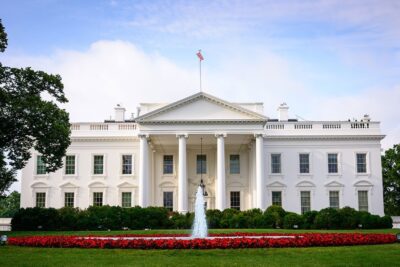Re-Envisioning a Doctorate of Nursing Practice (DNP) program
August 9, 2023
Daisy Sherry
Associate Dean, College of Nursing & Health Sciences, Lewis University
The views and opinions expressed are those of the author and do not necessarily represent the views or opinions of EAB.
There is a fast-growing labor market for Nurse Practitioners (NPs). Data show the employment projections for NPs are growing significantly faster than average (34% growth as compared to 2% for all occupations).
Many nursing schools have recognized this trend and developed NP programs at the level of a Master’s degree. More recently, there has been national momentum to prepare NPs at the doctoral level due to the ever-increasing complexity and dynamic nature of health care, the need for systems-level thinking, and essential skills for collaboration with interdisciplinary teams. Many current DNP programs that are not focused on an NP-specialty advanced practice role are finding themselves with enrollment challenges. Subsequently, many nursing schools are challenged to transition their NP programs to the DNP level to meet the market need and satisfy stakeholders. Concurrently, DNP programs foresee a need to expand curricular offerings to include clinical tracks, including the NP.
At Lewis University, we are examining innovative and data-based ways to solve this challenge with the assistance of EAB. One strategy we are actively addressing is to reduce barriers for students. This includes a close look at admissions criteria as it relates to GPA and practice experience.
Another strategy is to strengthen the curriculum to offer courses that address in-demand skills and bolster experiential learning opportunities. And yet another strategy is to ensure program flexibility. This entails creative ways to comprehensively address doctoral education requirements, clinical track hours, and market expectations in fulfilling the roles of NP, leader, educator, and collaborator. At the same time, it is essential to be attractive to savvy students who are adult learners that are likely to hold a job, have a family, and juggle life’s responsibilities.
-
Interested in the Rising Higher Education Leaders Fellowship?
Learn more about the program and future cohorts.
Addressing these strategies requires many resources. To begin addressing these strategies at Lewis University, a DNP curricular task force was formed to perform a gap analysis, closely examine new competencies, and begin to develop new learning activities and experiences. We convened an Advisory Board meeting with several community stakeholders to help calibrate our DNP graduate outcomes and role expectations in the marketplace. There is more work to be done, but we have a vision, plan, and team to continue moving forward with expanding our DNP program offerings to include NP tracks.
Participating in the EAB Rising Higher Education Leaders Fellowship was a valuable experience that will be treasured. The experience provided affirmation in data-based evidence to guide our path forward and broadened our perspective to a national lens. Most of all, it is the network of EAB experts’ support and connection with peers that will be cherished. I am grateful for this experience, and the support from my university’s leadership for the opportunity to contribute, reflect, and grow as a leader.
More Blogs

'No net new': What stuck with university leaders at our Campus Space Summit

Responding to federal policy shocks: What we learned from nearly 50 higher ed institutions
